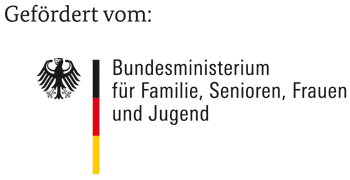First Gender Equality Report
The 2005 Coalition agreement between Christian Democratic Union, Christian Social Union, and Social Democrats states for the first time that there should be a gender equality report for every legislation period. Three years later, Dr. Ursula von der Leyen, then federal minister for family affairs, senior citizens, women and youth, commissioned an interdisciplinary Expert Commission with the creation of the First Gender Equality Report of the German Government.
The expertise of the Expert Commission was handed over to the federal government in 2011, which in turn drafted a statement on the expertise. The two parts - the expertise of the Expert Commission and the statement by the government on the expertise of the Expert Commission - constitute the First Gender Equality Report of the Federal Government, entitled Neue Wege - Gleiche Chancen. Expertisen zum Ersten Gleichstellungsbericht der Bundesregierung (“New pathways - Equal opportunities. Gender equality over women's and men's lifecourse”) which was published in June 2011.
Under the premise of “gender equality policy with a life course approach”, the Expert Commission assessed the current and future need for gender equality policy measures. The life course approach allows for assessment of inequalities over the entire life course, i.e. a longitudinal view. Life courses are determined by different life phases and various institutions, among other factors. Transitions from one life phase to the next, e.g. entering into employment or founding a family, mark focal points in life courses. The life course approach shows long-term effects of specific events and decisions in different life phases for different social groups and under the existing conditions, and thus makes comparisons possible.
The central research subject of the Expert Commission was “Gender Equality in Education and in Employment” and - in connection with that - the issues of gender role models in law, time apportionment of women and men in the conflict area between employment and care work, as well as social security in old age.
To obtain a comprehensive overview on gender equality policy in Germany, the Expert Commission commissioned a total of 17 expertises which were drafted specifically for the Gender Equality Report. Part of the expertise has been published by the publishing house VS Verlag under the title “Neue Wege - Gleiche Chancen. Expertisen zum Ersten Gleichstellungsbericht der Bundesregierung” (Klammer/Motz 2011). Additionally, the results and findings from events, expert discussions and hearings by the Expert Commission were also included in the final expertise.
Moreover, the Commission drafted eleven factsheets on core topics of the Gender Equality Report, for instance on career breaks, old-age provisions and care work.
As a basis for its work, the Expert Commission drafted a guideline which “should serve as orientation for the long-term reorganisation of the institutions and towards which policymakers should work progressively” (Federal Government 2011: 233).
“We aim for a society with equal choices. The employability of men and women is ensured by a good education. They are capable of providing for their own livelihood and of building their own social security. The professional qualifications and competences of women and men are equally valued and rewarded. Adequate infrastructure for children’s day care, school education and care as well as flexible working hours in the companies ensure compatibility of work and family life. Employment patterns and life courses are made more flexible by offering options for career breaks or a temporary and reversible reduction in working hours. Society supports the realisation of such options for childcare and education, care work and further (vocational) training. Special incentives are put in place to use the options in the socially desirable fields by both women and men. The use of these options must not lead to disadvantages in old-age provisions and insurance.” (Federal Government 2011: 48).
Core recommendations of the First Gender Equality Report are:
- Gender role models in law: Modernisation of role models and consistent application of law along the guidelines of gender equality
- Education: Preventing a race to the bottom and supporting free choices in all life phases.
- Employment: Eradicating misplaced incentives, ensuring equal pay and equal career opportunities
- Time apportionment: Enabling flexibility and supporting different kinds of work
- Age: Revaluing care work and guaranteeing sufficient social security in old age.
The members of the Expert Commission were:
- Professor Dr. Ute Klammer (chairwoman), University of Duisburg-Essen
- Professor Dr. Gerhard Bosch (as of February 2010), University of Duisburg-Essen
- Professor Dr. Cornelia Helfferich, Protestant University for Applied Sciences Freiburg
- Professor Dr. Tobias Helms (until November 2010), University of Marburg
- Professor Dr. Uta Meier-Gräwe, Justus Liebig University Giessen
- Professor Dr. Paul Nolte, Freie Universität Berlin
- Professor Dr. Marion Schick (chairwoman until March 2010), Munich University of Applied Sciences
- Professor Dr. Margarete Schuler-Harms, Helmut Schmidt University Hamburg
- Professor Dr. Martina Stangel-Meseke, BiTS Business and Information Technology School gGmbH
To support the Expert Commission’s work, an agency was established at Fraunhofer Gesellschaft.



